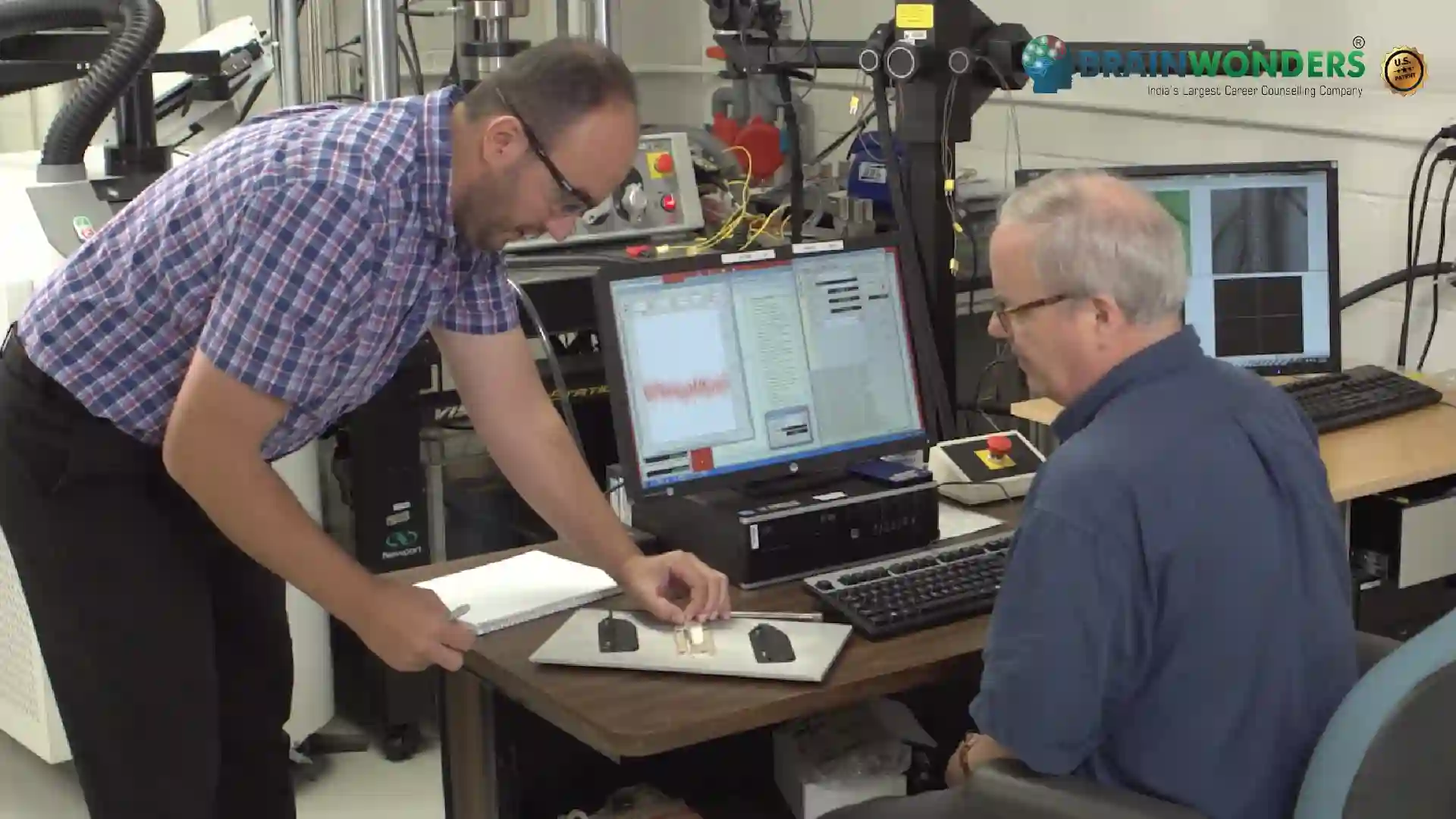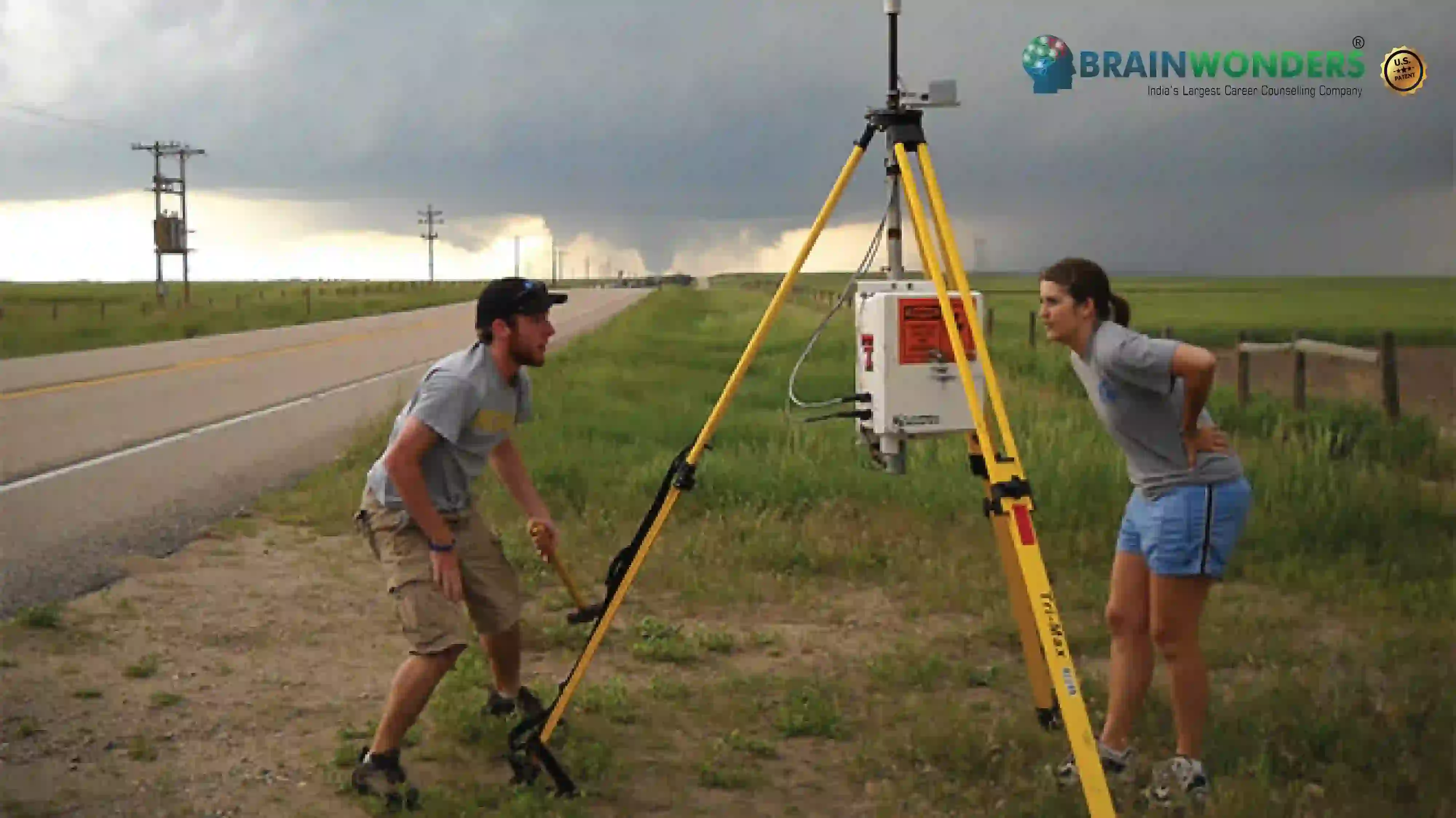How to become a Space Technologist
Overview, Courses, Exam, Colleges, Pathways, Salary

Overview
Who is Space Technologist ?
Space technologists are the front-line workers who are involved with building and testing spacecraft and their systems. They have both theoretical and practical knowledge. Their training involves mathematics, scientific principles, theories of engineering etc. They have a wide array of tasks varying from research and development to construction of testing materials, model making, maintenance, space management of the aircraft etc.
Typical day at work
What does Space Technologist do?
- The work associated with the job are, designing, data interpretation, analysis, planning and problem solving, preparation of the technical specifications and technical consultations.
- The computer Engineering Technicians are required to maintain and troubleshoot the electronic equipment’s and to build the computer system prototypes to control the electronic signals
- The space craft equipment’s, electrical and electronic systems are designed and developed by electrical and electronics technologists
- The machinery, parts and tools of the spacecraft are designed, developed and maintained by Mechanical Engineering Technicians
- The robotic manipulators for the spacecraft are designed and developed by the technologist specialized in robotics along with the engineers.
- Telecommunication technicians are involved with networks that transmit data. Physical cables, optical systems and radio systems are used for telecommunication networks.
Abilities and Aptitude needed
What are the skills, abilities & aptitude needed to become Space Technologist?
- Space Technologist’s first and foremost skill is thorough knowledge in space science with special emphasis on physics. Weakness in the expertise would enhance the risk of several lives.
- The technological background and experience with computers as well as the basics of engineering are required. As for a scientist, a technologist must have the ability to look over the most minute details and have the analyzing capacity to troubleshoot and maintain the systems.
- Team working skills are necessary, for they need to collaborate with engineers and other experts to complete their project.
Salary
Salary for Space Technologist?
The salary of a Space Technologist in India can vary significantly depending on factors such as experience, qualifications, specialization, employer, and the specific role within the space industry. Here is a general overview:
Salary Range: The salary range for Space Technologists in India can vary widely. Entry-level positions may have salaries starting from approximately Rs.25,000 to Rs.50,000 per month. With experience and expertise, the salary can range from Rs.50,000 to Rs.1,50,000 or more per month. These figures are approximate and can vary based on factors such as the employer (government agency, private company, research institution), location, and the demand for specialized skills.
Highest Paying Jobs and Scope: The highest paying jobs for Space Technologists in India are often found in prestigious government space agencies such as ISRO (Indian Space Research Organisation) or in reputable international space organizations. Leadership roles, project management positions, or specialized technical roles within these organizations may offer higher salaries. Additionally, specialized roles in satellite design, mission planning, propulsion systems, and space research can be well-paying. The scope for Space Technologists in India is expanding as the country invests in space exploration, satellite development, and related technologies. Opportunities exist within government space agencies, private aerospace companies, research institutions, and startups focused on space technology. With advancements in the space sector, there is potential for growth and diversification of roles, including satellite technology, space systems engineering, space communications, remote sensing, and space research.
Pathways
How to become an Space Technologist?
Entrance Exam
Entrance Exam for Space Technologist ?
Courses
Which course I can pursue?
Best Colleges
Which are the best colleges to attend to become an Space Technologist?
Industries
Which Industries are open for Space Technologist?
Space Technologists can find employment opportunities in various industries and organisations involved in space exploration, research, and technology development. Here are some industries and sectors that commonly employ Space Technologists:
- Space Agencies: National and international space agencies, such as NASA (National Aeronautics and Space Administration), ISRO (Indian Space Research Organisation), ESA (European Space Agency), and others, employ Space Technologists to work on space missions, satellite development, space research, and space technology projects.
- Aerospace and Defense Companies: Aerospace and defence companies specialising in spacecraft manufacturing, satellite development, launch systems, and related technologies often employ Space Technologists. These companies work on both government and commercial space projects.
- Research Institutions and Laboratories: Research institutions and laboratories focused on space research, and exploration employ Space Technologists to conduct research, develop new technologies, and analyse data collected from space missions. These organisations can include universities, government research institutes, and private research facilities.
- Space Technology Startups: The space technology sector has seen the emergence of numerous startups focused on innovative space technologies, satellite systems, and space exploration. These startups often seek talented Space Technologists to contribute to their projects and advancements in the field.
- Satellite Communication and Remote Sensing Companies: Companies involved in satellite communication, remote sensing, and Earth observation systems require Space Technologists to develop and maintain satellite communication networks, process satellite data, and analyse remote sensing information.
- Aerospace Engineering and Manufacturing Companies: Aerospace engineering and manufacturing companies that work on components and systems for space missions employ Space Technologists in areas such as propulsion systems, guidance and navigation systems, spacecraft structure design, and testing.
- Academic and Educational Institutions: Academic institutions and universities that offer programs in space science, astrophysics, aerospace engineering, or related fields have research positions or teaching roles for Space Technologists.
internship
Are there internships available for Space Technologist?
Yes, internships are available for aspiring Space Technologists. Internships provide valuable hands-on experience and the opportunity to work on real-world projects in space technology. Here are some avenues to explore for Space Technologist internships:
- Space Agencies: National and international space agencies, such as NASA (National Aeronautics and Space Administration), ISRO (Indian Space Research Organisation), ESA (European Space Agency), and others, offer internship programs for students and young professionals interested in space technology. These internships provide the opportunity to work on space missions, satellite projects, and research activities.
- Aerospace and Defense Companies: Aerospace and defence companies specialising in space technology often have internship programs. These programs allow interns to work on various aspects of spacecraft manufacturing, satellite development, and related technologies.
- Research Institutions and Laboratories: Research institutions and laboratories focused on space research and technology development offer internships for students pursuing degrees in space science, aerospace engineering, or related fields. These internships involve working on research projects, data analysis, and technology development.
- Space Technology Startups: In the space technology sector, startups may offer internships to students and young professionals interested in gaining practical experience in space technology development and innovation. These internships provide exposure to cutting-edge technologies and entrepreneurial environments.
- Academic and Educational Institutions: Academic and universities with space science or aerospace engineering departments may have internship programs for students to gain hands-on experience in space technology research or related projects.
Career outlook
What does the future look like for Space Technologist?
The education requirements would be a two-year technical diploma, four-year technical engineering diploma etc. the engineering diploma provides training in both theoretical and practical fields. The space technologist could specialize in Computer engineering, Electrical and electronics engineering, Mechanical engineering, Robotics, Telecommunications etc. Often the work involves a team effort along with other experts. The average salary in India would range from 1.5 Lakh per annum to 6.5 Lakh per annum. The advancements in the career would depend upon the experience in the number of years.




